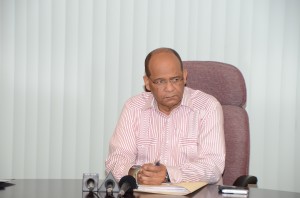The local ministerial task force on human trafficking said it is deeply concerned that the U. S. State Department report on the global scourge has not reviewed Guyana fairly and therefore attracts little merit on the part of the government of Guyana.
Government, in rejecting the report, said it is riddled with inaccuracies aimed at “sexing it” up. In a response to the U. S. report which was issued last month, the task force which is chaired by Home Affairs Minister Clement Rohee said the report contains several inaccuracies and misrepresentations with regard to the scope of trafficking in persons in Guyana. It said too that the report ignores the efforts of the government of Guyana in combating trafficking in persons.

Clement Rohee



